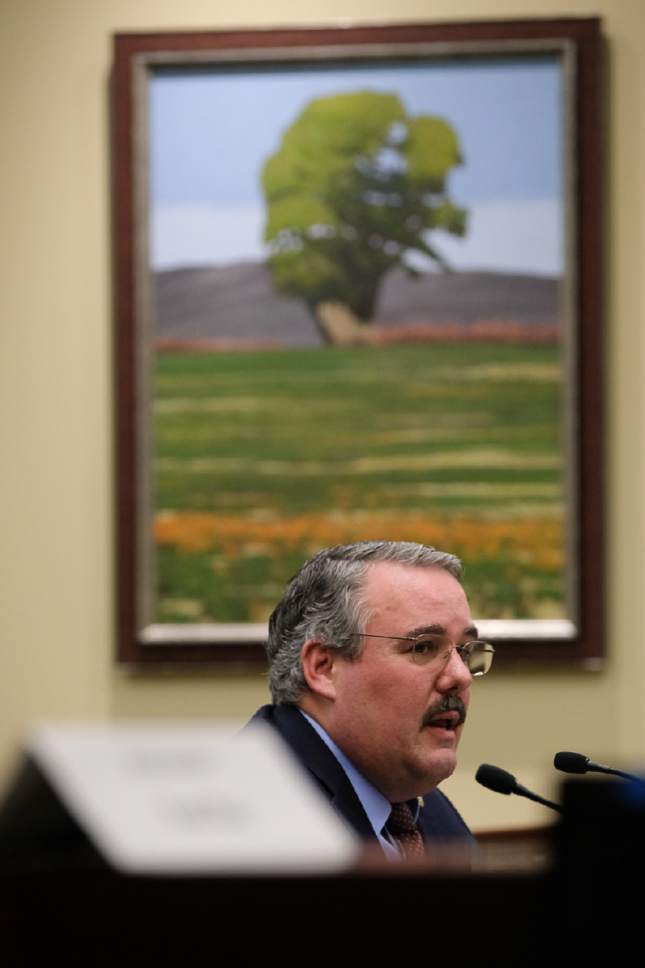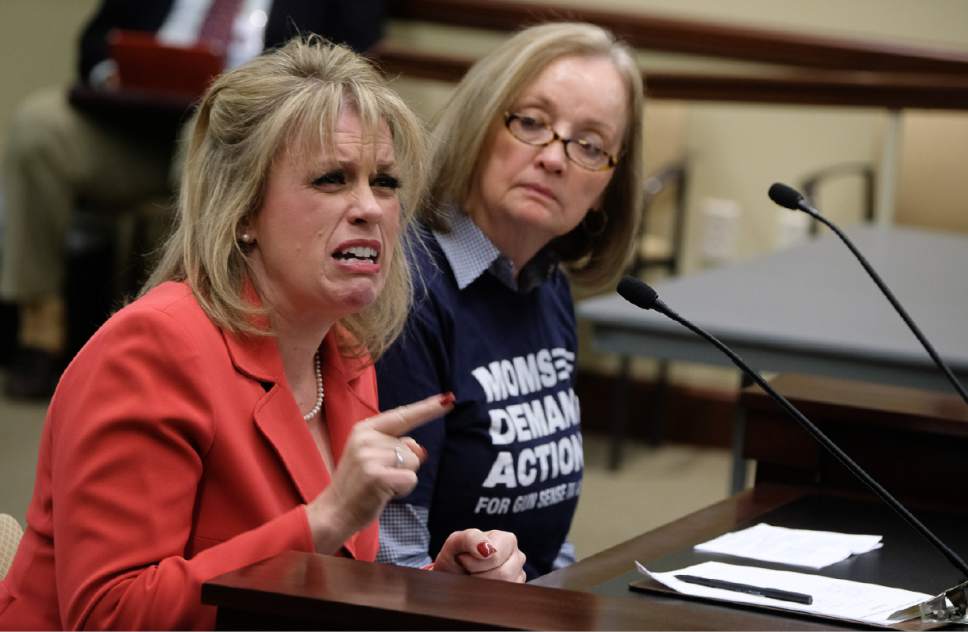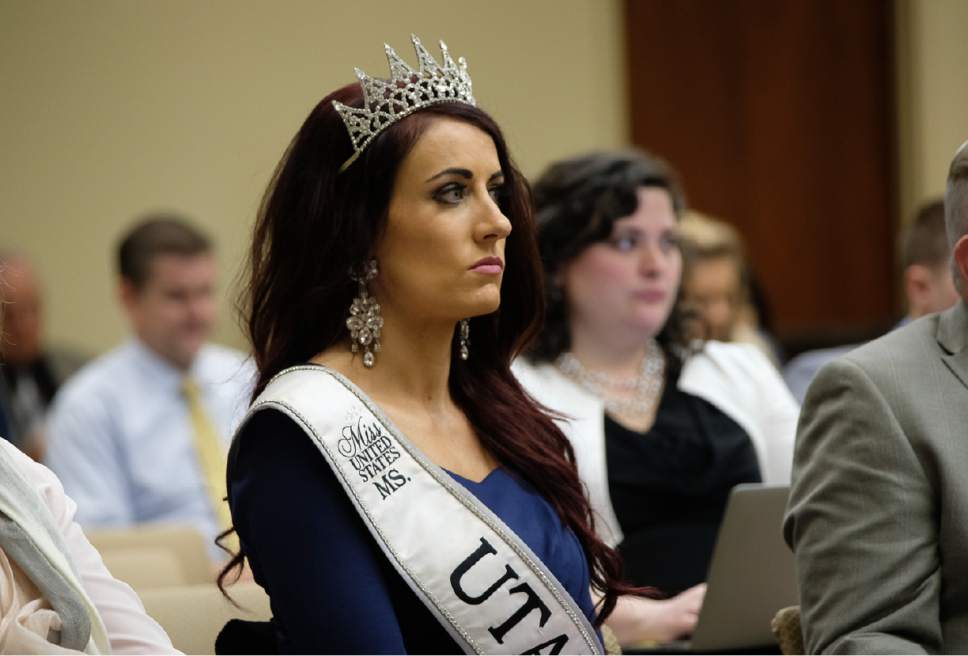This is an archived article that was published on sltrib.com in 2017, and information in the article may be outdated. It is provided only for personal research purposes and may not be reprinted.
Lawmakers shot down a bill Tuesday that sought to allow carrying concealed guns in Utah without a permit — but this time it had a twist, combing such provisions with new, greater protection for victims of domestic violence.
The House Law Enforcement and Criminal Justice Committee voted 5-5 on HB237. The tie vote killed it for now, but its sponsor, state Rep. Lee Perry, R-Perry, said he may try to resurrect it. "I will talk with those involved to get their feel on it," he said.
Gov. Gary Herbert vetoed legislation in 2013 that would have allowed carrying concealed guns without a permit, arguing that Utah's concealed-carry permit system has worked well to protect the state with extra background checks and a firearms-safety class — and he did not want to undermine it.
He has since said he would veto similar proposals.
So Perry pushed a somewhat different bill this year. In addition to allowing concealed carry without a permit, it would ban people who have protective orders against them or who have been convicted of domestic violence from buying, owning or carrying guns.
Two victims of violence argued on different sides of the bill in a hearing Tuesday.
Heather Wolsey said her ex-husband almost killed her and abused their six children. When told he had been released from jail and that police had lost track of him, "I went out and bought a gun. And I broke the law because I carried it with me" in a purse.
She later took a concealed-carry permit class and applied for a permit in September. She finally received her permit in the mail this month. "Other victims should not have to wait that amount of time to protect themselves," she said.
Perry said his permitless carry bill would allow such Utahns to legally have a concealed weapon immediately. He said they could open carry now — with a weapon worn outside clothing in open view, but that could escalate problems if seen by the person who has threatened violence.
Opposing the bill was Anne Bagley, a survivor of the 2007 Trolley Square mass shooting, representing Moms Demand Action for Gun Sense.
"HB237 potentially allows dangerous people to easily carry concealed loaded weapons in our state in public places, such as Trolley Square," she said, and "allows people who have not passed a background check or have proper safety training to carry loaded weapons around children and all of us."
She praised the parts of the bill to protect victims of domestic violence, but said, "The good does not outweigh the bad. And in this case, the bad is really, really bad."
The committee's refusal to pass the bill was praised later in a statement by Moms Demand Action for Gun Sense and Everytown Survivor Network (ESN).
"This past weekend, I spent time with my family and friends remembering the life of my daughter Kirsten, who was shot 10 years ago at the Trolley Square shooting," said Carolyn Tuft, an ESN member. "Since that time and in my daughter's memory, I've used my voice to fight for common-sense gun-safety legislation. Today, I'm proud that our lawmakers rejected House Bill 237 — legislation that would have stripped the core public safety standards contained within Utah's current permitting system. Our legislators took a stand for public safety and because of their rejection of this dangerous legislation, we'll all be safer."
State Rep. Kelly Miles, R-Ogden, said the bill should be split in two — one for permitless carry, and one for domestic violence — and voted against it. A separate bill dealing only with domestic-violence issues, HB206, by House Minority Leader Brian King, D-Salt Lake City, is pending before the full House.
Rep. Mike Winder, R-West Valley City, said the bill is not perfect, but could save lives. He also said Utah law may be backward now. "You can openly have a gun on the side of your hip. But if you put a jacket over it, you need a permit. One would almost think it should be the other way around."
Perry, who is a Utah Highway Patrol lieutenant, also noted that people may now carry openly "without any training at all," making them an outlaw if they cover their gun with a coat or shirt. He said background checks also occur whenever a gun is purchased — so those would not be lost with his bill. However, the state runs continual background checks on those with concealed permits, revoking or suspending those if the holder commits a crime.
Perry argued that the conceal-carry permit system would continue under his legislation, and many Utahns would choose to obtain them to allow carrying guns outside Utah in the many states that recognize those permits.







